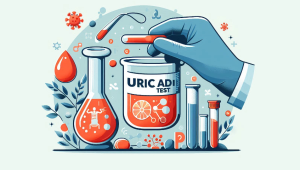What is a Vitamin A Test/Retinol Test?
A Vitamin A Test, also referred to as a Retinol Test, is a blood test that measures the amount of Vitamin A (specifically, retinol) circulating in your bloodstream. Vitamin A is a fat-soluble vitamin essential for various bodily functions including vision, immune system function, reproduction, and cellular growth and development.
Why Do You Need a Vitamin A Test?
A Vitamin A test is usually ordered when:
- Suspected Vitamin A deficiency: Individuals exhibiting symptoms like night blindness, dry skin, frequent infections, or delayed growth might undergo this test.
- Monitoring Vitamin A supplementation: People taking high doses of Vitamin A supplements need regular monitoring to avoid toxicity.
- Assessing liver function: Since Vitamin A is stored in the liver, abnormal levels might indicate liver problems.
- Malabsorption concerns: Certain conditions like Crohn’s disease or cystic fibrosis can affect Vitamin A absorption, necessitating this test.
What Does a Vitamin A Test Measure?
The test directly quantifies the concentration of retinol, the active form of Vitamin A, in your blood serum. Indirectly, it provides insights into:
- Vitamin A status: Whether you have deficient, adequate, or excessive levels of Vitamin A.
- Potential health risks: Both deficiency and toxicity can pose health threats.
- Underlying conditions: Abnormal levels might signal issues with liver function or nutrient absorption.
Preparing for the Test
Usually, no special preparation is needed for a Vitamin A test. However:
- Fasting: Some labs might require fasting for 8-12 hours before the test, so check with your healthcare provider beforehand.
- Medications: Inform your doctor about any medications or supplements you’re taking, as some can interfere with the test results.
- Recent Vitamin A intake: High doses of Vitamin A supplements taken shortly before the test can temporarily elevate levels.
Understanding the Results
Normal Vitamin A levels typically range between 30-80 mcg/dL. The interpretation might vary slightly depending on the lab and your specific situation. Generally:
- Low levels (deficiency): This might lead to night blindness, dry skin, increased susceptibility to infections, and impaired growth.
- High levels (toxicity): Excessive Vitamin A can cause nausea, vomiting, headache, blurred vision, liver damage, and even birth defects in pregnant women.
- Normal levels: Indicate adequate Vitamin A status.
Risk Factors and Prevention
Factors that increase the risk of Vitamin A deficiency include:
- Malabsorption disorders: Conditions that hinder fat absorption can also affect Vitamin A uptake.
- Limited dietary intake: Diets lacking in Vitamin A-rich foods like liver, dairy, eggs, and orange/yellow fruits and vegetables can lead to deficiency.
- Alcoholism: Chronic alcohol abuse can impair Vitamin A metabolism.
Prevention and management involve:
- Balanced diet: Include plenty of Vitamin A-rich foods in your diet.
- Supplementation: Consult your doctor before taking any Vitamin A supplements, especially if you have underlying health conditions or are pregnant.
- Address underlying conditions: If deficiency is due to malabsorption or other medical issues, treating those conditions is crucial.
Remember, maintaining optimal Vitamin A levels is key for overall health. Regular check-ups and following your healthcare provider’s advice are essential, especially if you have any risk factors for deficiency or toxicity.

 7351982473
7351982473











